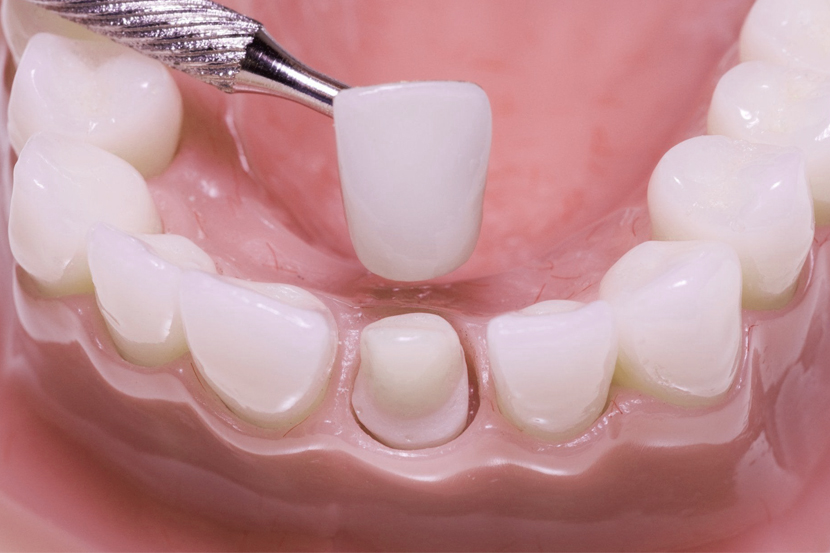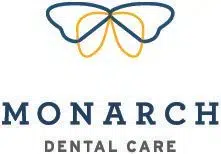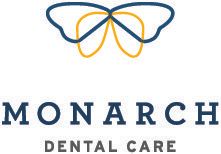
Determining If You Need a Dental Crown
Are you tired of toothaches and discomfort? Is your smile not as bright as you'd like? Monarch Dental Care, one of the best dental offices in Prairie Village, KS, is here to help. With our experienced dentists and state-of-the-art facilities, we offer comprehensive dental care tailored to your unique needs.
Call (913) 362-4488 today to schedule your appointment. We're committed to providing you with a comfortable and positive dental experience.
What Are Dental Crowns?
Dental crowns play a vital role in restoring damaged teeth, improving aesthetics, and ensuring long-term dental health. If you’re experiencing dental issues or have concerns about the condition of your teeth, it’s important to recognize the signs that indicate a dental crown may be necessary.
- Pain or Tooth Sensitivity: If you experience persistent toothaches or sensitivity to hot or cold substances, it could indicate that the decay or cavity has reached the nerve of the tooth. In such cases, a dental crown may be necessary to protect the tooth and alleviate discomfort.
- Visible Signs of Decay: If you can see visible signs of decay, such as dark spots, holes, or pits on the surface of your tooth, it’s a clear indication that the decay has progressed significantly. A dental crown can help restore the tooth’s structure and prevent further damage.
Benefits of Dental Crowns
Dental crowns offer several benefits, including:
- Improved Function: Crowns can restore the chewing function of a damaged tooth, allowing you to eat and speak comfortably.
- Enhanced Appearance: Crowns can help improve the appearance of a damaged or discolored tooth, giving you a more confident smile.
- Durability: Dental crowns are highly durable and can last many years with proper care.
- Prevention of Further Damage: Crowns can help prevent further damage to a weakened tooth, reducing the risk of tooth loss.
Signs You May Benefit From a Dental Crown
Severe Tooth Pain
A severe toothache that doesn't subside with over-the-counter pain relievers can be a sign of a damaged tooth that requires a crown. If you're experiencing throbbing pain, sensitivity to hot or cold temperatures, or pain when chewing, it's important to see a dentist as soon as possible.
Cracked or Chipped Tooth
A cracked or chipped tooth can be both unsightly and painful. If you've recently experienced a dental injury, it's essential to have your teeth examined by a dentist. A crown can help restore the tooth's structure and prevent further damage.
Large Cavity
A large cavity can weaken a tooth and make it more susceptible to fracture. If you have a cavity that's significantly affecting the tooth's structure, a crown may be necessary to prevent the tooth from breaking.
After a Root Canal Treatment or Failed Root Canal Treatment
After undergoing a root canal treatment, the affected tooth may require a dental crown to protect and strengthen it. A crown adds an extra layer of protection, ensuring the longevity of the tooth.
If you've had a root canal procedure in the past and are still experiencing pain or discomfort, it may be a sign that the root canal has failed. A crown can help protect the tooth and prevent further complications.
Dental Implant or Dental Bridge Restorations
When replacing a missing tooth with a dental implant, a dental crown is typically used to cover the implant post. This crown acts as a natural-looking replacement tooth that blends seamlessly with your smile.
When replacing a missing tooth with a dental bridge, the adjacent teeth that support the bridge may need dental crowns. Crowning these teeth ensures they can provide a stable foundation for the bridge, ensuring a secure and functional replacement.
Dental Erosion
Dental erosion, caused by acid reflux, excessive brushing, or eating acidic foods, can weaken the enamel of your teeth. Over time, this can lead to tooth sensitivity and pain. A crown can help restore the tooth's strength and protect it from further damage.
Aesthetic Concerns
If you are unhappy with the appearance of your teeth due to gaps, misalignment, or other cosmetic issues, dental crowns can help you achieve the smile you desire. They can improve the shape, size, and color of your teeth for a more aesthetically pleasing result.
Factors to Consider Before Getting a Dental Crown
When considering a dental crown, there are several important factors to keep in mind. These factors can help you make an informed decision and ensure the best possible outcome for your dental health.
- Longevity: Dental crowns are designed to be long-lasting, but the actual lifespan can vary depending on factors like oral hygiene, habits, and the material used. Discuss the expected longevity of different crown options with your dentist.
- Cost: The cost of dental crowns can vary based on factors such as the material chosen, the complexity of the procedure, and your location. Discuss the cost and payment options with your Location dentist.
- Appearance: If you have cosmetic concerns, such as front teeth that are visible when you smile, consider the aesthetic aspect of the crown. Porcelain or all-ceramic crowns are excellent options for a natural and pleasing appearance.
- Tooth Preparation: The extent of tooth preparation required for a dental crown can vary. In some cases, minimal preparation is sufficient, while in others, more significant reshaping may be necessary.
Choosing the Right Type of Dental Crown
When considering a dental crown, it’s essential to understand the different types available. Your dentist will recommend the most suitable option based on your specific needs and may be able to place the crowns in one appointment. Let’s explore some common types of dental crowns:
- Porcelain Crowns: These crowns are known for their natural appearance and are excellent for restoring front teeth. They can be color-matched to blend seamlessly with the surrounding teeth.
- Zirconia Crowns: Made from a durable and biocompatible material called zirconium dioxide, these crowns offer exceptional durability and resistance to chipping or cracking. Zirconia crowns are known for their translucent appearance.
- Metal Crowns: Made from metals like gold or silver alloy, metal crowns are durable and resistant to wear. However, their metallic appearance makes them more suitable for molars or teeth less visible when you smile.
- Porcelain-fused-to-metal (PFM) Crowns: These crowns combine the strength of metal with the aesthetic appeal of porcelain. They’re a popular choice for both front and back teeth.
Frequently Asked Questions
Considering a Dental Crown? Call Dr. Clark Today
Understanding the signs you need a dental crown is crucial for maintaining optimal dental health and addressing dental concerns effectively. By recognizing the indications, considering the factors, and discussing your options with a dental professional, you can make an informed decision that aligns with your needs and goals.
Take the first step towards a healthy smile by contacting Dr. Alex Clark to schedule a consultation at our Prairie Village practice and learn more about how dental crowns can benefit you. Call (913) 362-4488 today.

